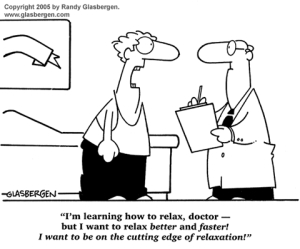Massage has been used as a wellness and healing practice for years, and with the infusion of pure CBD oil, it makes for a potent remedy that enhances the benefits of massage so you can relax deeper getting more out of your massage.
When applied topically, CBD oil is absorbed into the skin and targets certain receptors found in the skin’s mast cells and nerve fibers called cannabinoid receptors. This gives a calming, anti-inflammatory effect with localized benefits all over the skin and muscles. CBD does not get into your bloodstream, but permeates the skin when liberally applied and left to absorb.
A CBD massage has deeper health benefits than a regular massage because CBD is a cannabinoid that acts on our endocannabinoid system. The endocannabinoid system is a system in the body responsible for regulating and balancing many processes including immune response, communication between cells, appetite and metabolism, memory, and more. It is through this system of receptors and metabolic enzymes that cannabinoids interact with the human body and trigger beneficial effects. Despite the huge role the endocannabinoid system has in human body function, it was discovered relatively recently and much of its importance is only just becoming understood.
The main function of the endocannabinoid system is to maintain homeostasis within our various body systems. In other words, it exists to return us to biological harmony when we have gotten out of balance. Research shows that endocannabinoid receptors are present all over the body: in the brain and nerves, skin, immune system, bone, fat tissue, liver, pancreas, muscles, heart, blood vessels, kidneys, reproductive organs and intestinal tract. In each of these areas, the endocannabinoid system works to return the body to homeostasis and optimum functioning.
CBD, by stimulating our own endocannabinoid system, has been found to have an effect on a wide variety of biological functions, such as pain, memory, mood, appetite, stress, sleep, metabolism, immune function, and reproductive function. A CBD massage is a great way to do this and is something you should consider making a regular occurrence.
Below are some of the benefits of incorporating CBD oil in your massage.
1. Reduce Tension
One of the main reasons to get a massage is to relieve tension from your body. Both in body and mind, the cannabinoids in CBD massage oil helps to do this. CBD helps to ease and relax your muscles as the cannabinoids enter our endocannabinoid system via the skin. Since it doesn’t contain THC, the active ingredient of marijuana, you won’t get high from it. That means you can go about the rest of your day without feeling high and still enjoy the relaxing afterglow of the massage.
2. Helps Relieve Chronic Pain
CBD massages are perfect for those who suffer from chronic pain. This is because CBD is proven to be an excellent way to deal with pain management. The cannabinoids in CBD massage oil help to reduce inflammation and soothes muscles. This makes it very effective at providing relief from painful joints and muscles. People who suffer from chronic pain, arthritis, back pain, and so much more can reap the many benefits of a CBD oil massage. You might start to feel the effects within minutes and it can last for days afterward.
3. Alleviates Anxiety and Stress
If you suffer from anxiety or feel stressed often, you could also enjoy the benefits of a CBD massage. CBD oil is hailed for its ability to reduce the symptoms of anxiety, and a massage could be the most effective use of it because CBD oil induces a soothing and calming effect but doesn’t get you high. A massage without CBD oil will help you to de-stress, and paired with CBD oil it’s a match made in heaven! The effects of a CBD massage is the perfect way to calm down and ease your mental state.
4. Improves Skin Conditions
You might not know that CBD is, in fact, a fantastic moisturizer. CBD massage oil contains hemp which conditions the skin making it supple and soft. Not only does this help you feel better and more relaxed after the massage, but it can also help with skin conditions. People who suffer from skin conditions such as eczema, acne, psoriasis or even just dry skin, can benefit from it.
This is also because of the anti-inflammatory properties of CBD that will soothe the skin and reduce the pain of some skin conditions as well. There are minimal side effects and if you’ve tried other remedies that haven’t worked, it’s definitely something you should consider.
5. Boosts Your Mood
If you’ve ever had a massage before, you’ll know that during and after, you feel great because of it. It relaxes the body and mind and helps you to forget about your worries and live in the moment.
Combined with CBD oil, this elevates the experience and makes it much more enjoyable. You’ll leave the massage with smoother skin, relaxed muscles, and feel less anxious or stressed in general.
All of these factors combined provide a massive boost to your mood.
6. Stimulates the Senses
Getting a CBD oil massage is a great way to connect to your body and it stimulates the senses in a unique way. Since your skin, muscles, and mind are all being stimulated during the massage, it provides a great feeling. You’ll feel more connected with your body and can help you feel refreshed and alert. Living in such a fast-paced world means that we don’t often spend enough time connecting with ourselves and living in the moment.
Getting a CBD massage is an amazing experience and could help ease anxiety, pain, skin issues, and even just relax you. It is becoming an increasingly popular form of massage in recent years. The only way to understand how good it can be is by getting one for yourself.
Healing Arts NYC uses only the finest CBD products available for massage therapy sessions.
60 minutes for $165.




